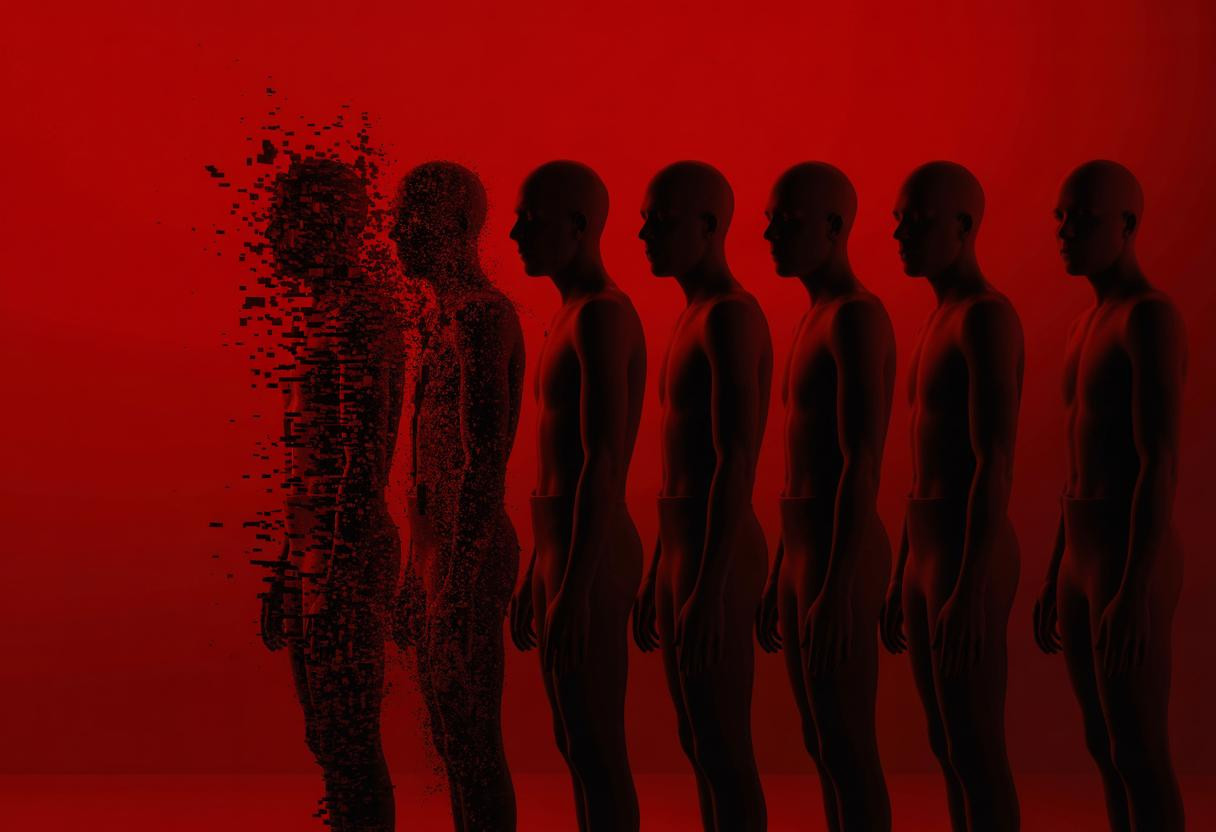Scientists have discovered a chilling paradox lurking in our genetic future: the very technologies promising to perfect humanity might be engineering our extinction. Princeton sociologist Dalton Conley’s groundbreaking research reveals how our newfound ability to select “superior” genetic traits could create an evolutionary dead end, transforming human diversity into a genetic monoculture more fragile than we ever imagined.
The implications are staggering. While we celebrate medical breakthroughs that can predict everything from height to intelligence, we’re simultaneously creating conditions that could make our species vulnerable to catastrophic collapse.
The genetic selection revolution is already reshaping humanity
Polygenic indexes now predict educational outcomes with unprecedented accuracy – children in the top genetic decile have a 70% likelihood of college graduation compared to just 8% for those in the bottom decile. Fertility clinics are offering embryo selection based on these genetic profiles, while dating apps are beginning to incorporate genetic compatibility matching.
What seems like progress harbors a dark secret. Spouses already share genetic similarities equivalent to first cousins for education-related traits, creating an accelerating cycle of genetic homogenization. This isn’t random – it’s the result of systematic sorting where people with similar genetic profiles increasingly cluster together in neighborhoods, schools, and relationships.
The psychological drive behind this genetic curation mirrors psychological mechanisms behind belief in a “higher purpose”, where parents feel compelled to give their children every possible advantage.
The optimization trap threatens genetic diversity
Historical precedent reveals the danger. The Habsburg dynasty’s inbreeding created a genetic bottleneck that increased disease susceptibility and reduced adaptive capacity. Modern genetic selection could replicate this catastrophe on a species-wide scale, as we systematically eliminate genetic variants we don’t currently value.
Eliminating alleles associated with lower educational achievement might inadvertently remove genes linked to creativity, resilience, or adaptability to environmental changes. Like how common products can eliminate beneficial bacteria our bodies need, genetic optimization could destroy protective diversity we don’t yet understand.
Social stratification is creating permanent genetic castes
The societal transformation is already underway. Affluent neighborhoods increasingly cluster high-genetic-index individuals, while genetic advantages compound across generations through both inheritance and resource allocation. This creates a feedback loop where genetic privilege becomes self-perpetuating.
Modern dating culture accelerates this trend. Genetic sorting in modern dating apps represents just the beginning of algorithmic mate selection based on genetic compatibility scores.
Unlike historical eugenics programs, this “liberal eugenics” operates through individual choice rather than state mandate, making it more palatable but potentially more dangerous in its scope and permanence.
The extinction scenario unfolds through evolutionary traps
The path to potential species collapse follows a predictable pattern. Over-optimizing for currently desirable traits reduces our ability to adapt to future challenges. Genes favoring analytical thinking might disadvantage populations facing novel ecological crises requiring creative problem-solving.
Climate change, pandemics, and technological disruption demand genetic diversity for species survival. A homogenized gene pool optimized for today’s environment becomes tomorrow’s evolutionary dead end.
The crisis deepens as individuals experience identity crisis in our digital-age disconnection from natural selection processes, creating pressure for artificial optimization.
Prevention requires immediate action on multiple fronts
International regulation of non-medical embryo selection represents the most critical intervention. Genetic privacy laws must prevent corporate exploitation, while public education campaigns should combat biological determinism.
Policymakers need frameworks recognizing genes as probabilities rather than destinies, emphasizing that environmental factors still explain up to 60% of human outcomes. Preserving genetic diversity while enabling medical advances requires nuanced approaches that balance innovation with species survival.
The choice before us will define humanity’s future
We stand at a crossroads where technological capability collides with evolutionary wisdom. The question isn’t whether we can engineer better humans, but whether we should risk everything in pursuit of genetic perfection.
The ultimate irony: our quest to transcend human limitations might create the very limitations that doom us. Genetic diversity isn’t just our heritage – it’s our insurance policy against an uncertain future.
